B+ Spores
$30.00 – $320.00
B+ Spores (b plus mushroom spores) are some of the most sought after psilocybe cubensis mushrooms ever found.
Order B+ Spores Online In Georgia
B+ Spores for sale in Atlanta Georgia online delivery, and their spores are some of the most sought after psilocybe cubensis magic mushrooms ever found. Spores from the B+ Spores are available here at SporeStore.com because you asked for them! Find both mushroom spore syringe and also mushroom spore prints. This psilocybe cubensis magic mushroom was first discovered on a farm growing in a pile of dung and straw as its mushroom substrate in Florida. There is no psilocybin or psilocin contained within magic mushroom spores Georgia, making them completely legal to purchase and posses in most jurisdictions throughout the USA. As well as make sure to check your local laws before ordering. The original B+ Spores‘ genetics from the true B+ Spores psilocybe cubensis mushrooms from Florida are broughtt to you by SporeStore.com, the leader in mushroom spores.
Spores from this strain are in abundance as it’s a healthy spore depositor.
B+ Spores magic mushrooms are easy to grow. Check your local mushroom growing laws. Growing mushrooms for identification and taxonomy purposes? We have your spores!
In addition to the B+ Spores spores, here are some other mushroom spores that you may be interested in reviewing: Alcabenzi mushroom magic spores, Golden Teachers Shrooms mushroom spores which is also called B Plus mushroom spores, PES Amazonian mushroom spores, PES Hawaiian mushroom spores, Ecuador spores
Buy B+ Spores in DC, where to buy B+ Spores in dc
B+ Spores for sale in Atlanta Georgia
Habitat: Bovine, Equine Dung and Enriched Soils
Climate: Subtropical
Strain Origin: Unknown
Cap: 25-75 mm in diameter, hemispheric to convex expanding to broadly convex to nearly plane with age. Dark red maturing to golden brown. Surface viscid with apparent gelatinous layer when very wet, soon smooth from drying. Fine fibrillose veil remnants when young that soon disappear. Flesh white soon bruising bluish green.
Stem: 150-200+ mm in length. Typically equal, sometimes slightly enlarged at base, sometimes contorted. Yellowish to buff with a reflective sheen, bruising bluish, hollow. Partial veil membranous leaving a persistent membranous annulus that is well dusted with purplish brown spores even before tearing away from the cap.
Gills: Attachment adnate to adnexed. Grayish coloration in young fruit bodies becoming nearly black in maturity.
Spores: Dark purplish brown, subellipsoid, 13 by 8 micrometers on 4-spored basidia
Formerly misrepresented as Psilocybe azurescens.
Detail of separable gelatinous pellicle: This feature seems to be unique to the “B+” among cubensis. When young and fully hydrated the cap has a transparent amber colored layer of cells that quickly oxidizes upon removal to a more opaque blue gray color. The texture is like a thin stretchable layer of gelatin. Note the area where the pellicle has been removed is dull.
A 2011 study also found that more than a year after participants had a single psilocybin experience, their self-reported measures of openness remained significantly elevated, which researches in this study and beyond attribute to a somewhat mysterious but powerful aspect of a mushroom trip: the mystical experience.
In this case, a mystical experience is defined as “feelings of unity and interconnectedness with all people and things, a sense of sacredness, feelings of peace and joy, a sense of transcending normal time and space, ineffability, and an intuitive belief that the experience is a source of objective truth about the nature of reality.” The religious identification of people who have reported having a mystical-type experience during a mushroom trip span the spectrum, but interestingly the profundity of such experiences don’t seem to correlate to religious belief—even atheists have reported the importance of their psilocybin-induced mystical experiences. Additionally, research has shown that the more intense the mystical experience, the greater the positive, long-term changes a person sees.
These subjective effects, such as feelings of interconnectedness, are likely a result of psilocybin’s ability to decrease the interconnectivity of integration hubs in the brain.
| Qty | Single Syringe, 2 Spore Syringes, 4 Spore Syringes, 10Pack Syringes |
|---|
Be the first to review “B+ Spores” Cancel reply
Related products
Mushroom Spores
Mushroom Spores
Mushroom Spores
Mushroom Spores
Mushroom Spores
Mushroom Spores
Mushroom Spores
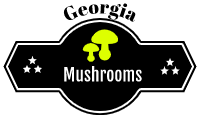

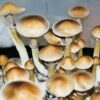
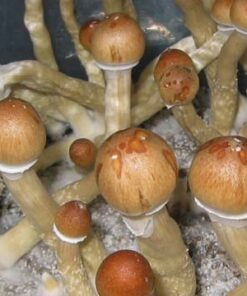
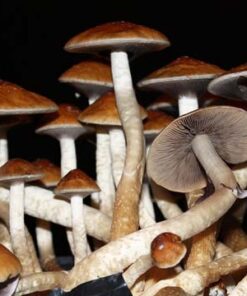
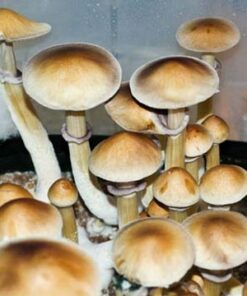
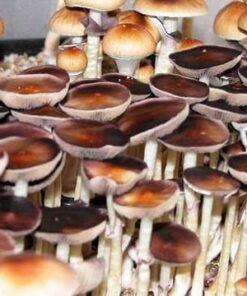
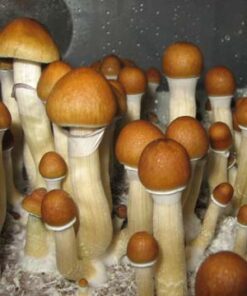
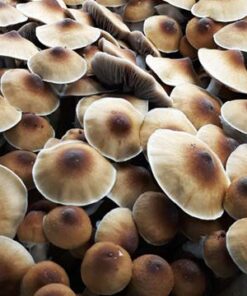
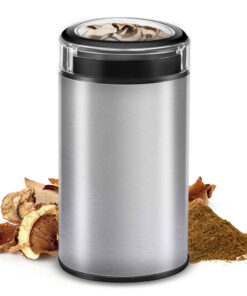
Reviews
There are no reviews yet.